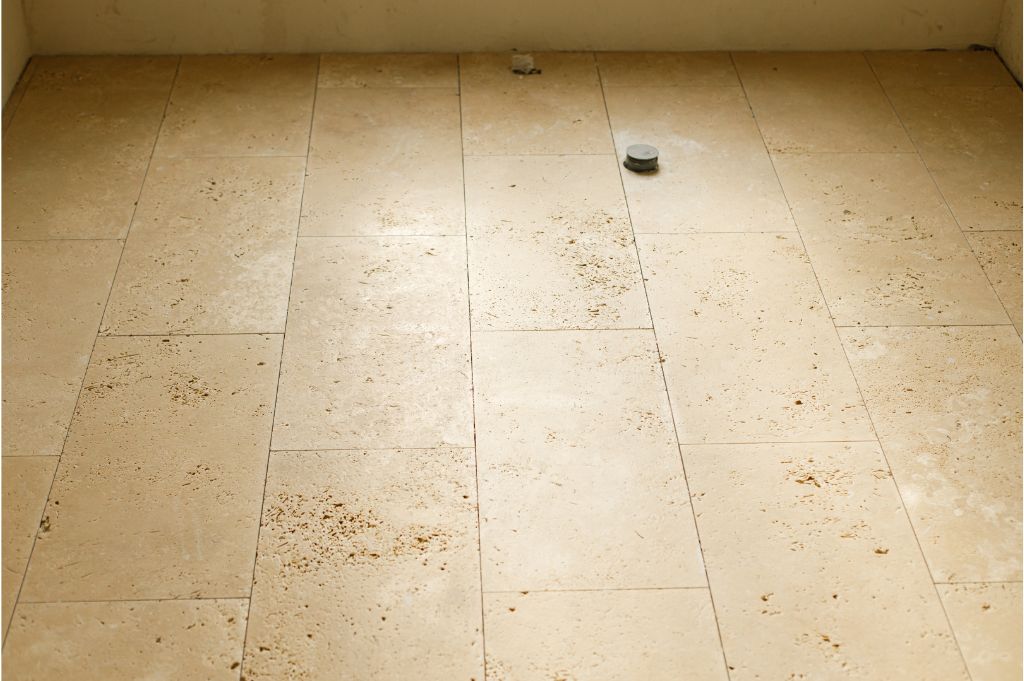
Travertine Tiles- Toscana
Travertine tiles are a timeless flooring option that brings a touch of natural elegance to any space. Formed over centuries, travertine is a type of limestone that has been used in construction for generations. Its unique characteristics make it a popular choice for homeowners and businesses alike, offering both beauty and functionality.
Benefits of Travertine Tiles
Appealing Features
Travertine tiles boast a distinctive appearance that sets them apart from other flooring options. With their soft, natural texture and subtle variations in color and pattern, they add warmth and character to any room. Whether used for flooring, walls, or outdoor areas, travertine lends a touch of sophistication to any space.
Accessibility
One of the key advantages of travertine tiles is their widespread availability. Unlike some exotic stones that may be difficult to source, travertine is commonly found in quarries around the world. This accessibility means that homeowners and contractors can easily find the right tiles for their projects without extensive searching or waiting times.
Ease of Installation
Travertine tiles are relatively easy to install, whether you choose to hire a professional or tackle the job yourself. Unlike some natural stones that require specialized cutting tools and techniques, travertine can be cut and shaped with standard equipment, making installation straightforward and efficient.
Cross Cutting
The cross-cutting technique used in crafting travertine tiles results in a more uniform appearance compared to other natural stones. By cutting the stone against the grain, manufacturers can create tiles with consistent color and texture, ensuring a seamless look when installed.
Environmentally Friendly
Travertine tiles are an environmentally friendly choice for flooring and construction projects. Unlike synthetic materials that require extensive processing and manufacturing, travertine is a natural stone that is simply quarried, cut, and polished. This minimal processing reduces energy consumption and environmental impact, making travertine a sustainable option for eco-conscious consumers.
Variety of Colors
One of the most appealing aspects of travertine tiles is their wide range of colors and finishes. From creamy whites to rich browns, travertine comes in a variety of hues to suit any design aesthetic. Additionally, the stone can be honed for a smooth, polished finish or left in its natural state for a more rustic look, giving homeowners plenty of options to customize their space.
Low Maintenance
Travertine tiles are relatively low maintenance, especially when compared to other natural stones like marble or granite. With proper sealing and regular cleaning, travertine floors can maintain their beauty for years to come. Unlike some materials that require specialized cleaners or treatments, travertine can be cleaned with mild soap and water, making it easy to keep your floors looking their best.
Cons of Travertine Floor Covering
Etching
One potential downside of travertine flooring is its susceptibility to etching. Because travertine is a calcium-based stone, it can react with acidic substances like vinegar or citrus juice, causing dull spots or discoloration. To prevent etching, it’s important to avoid using acidic cleaners on travertine surfaces and to promptly clean up spills to minimize damage.
Prone to Chipping and Brittleness
While travertine is a durable stone, it is not immune to damage. Because it is a sedimentary rock composed primarily of calcium carbonate, travertine can be prone to chipping and cracking, especially in high-traffic areas or areas with heavy furniture. To minimize the risk of damage, it’s important to use furniture pads and rugs in high-traffic areas and to avoid dropping heavy objects on travertine floors.
Higher Cost
Travertine flooring can be more expensive than some other flooring options, such as vinyl or laminate. Because it is a natural stone, travertine must be quarried and cut, which can increase the cost of production. Additionally, travertine tiles may require specialized thinset adhesive for installation, which can add to the overall cost of the project.
Porosity
Travertine is a porous stone, which means that it can absorb liquids and moisture if not properly sealed. This porosity can make travertine more susceptible to staining and water damage, especially in areas like kitchens or bathrooms where spills are common. To protect against staining and moisture damage, it’s important to seal travertine floors regularly and to clean up spills promptly.
Conclusion
In conclusion, travertine tiles offer a beautiful and versatile flooring option for homeowners and businesses alike. With their natural beauty, durability, and sustainability, travertine tiles are a timeless choice that can enhance any space. While they may require some maintenance and care, the benefits of travertine far outweigh the drawbacks, making it a worthwhile investment for anyone looking to add elegance and sophistication to their home or business.
Ready to transform your space with stunning travertine tiles? Look no further than Toscana Remodeling in Dallas, TX, your premier destination for expert tile installation and remodeling services. Whether you’re upgrading your floors, walls, or outdoor areas, our experienced team will ensure a seamless and beautiful result. Contact us today at (972) 406-8881 to schedule your consultation and bring your vision to life with Toscana Remodeling.
